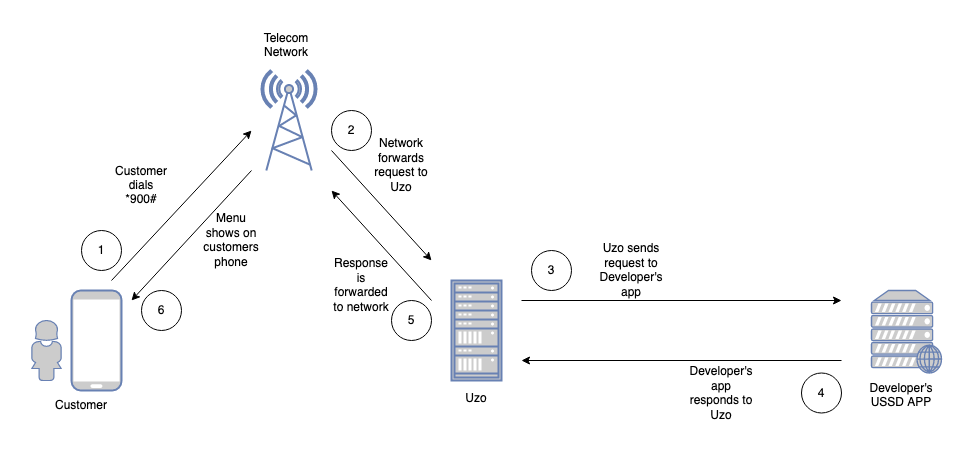USSD Flow
To initiate a USSD session, the user dials a USSD code from their mobile handset. The Telco USSD Gateway receives the request and routes it to Uzo. Uzo then sends the request to the client’s application URL using HTTP POST method with json data. The client’s application URL is the endpoint that handles the USSD logic and responds to the user’s input.

The Uzo POST request body
{
"ussdString" : "*1234#",
"msisdn" : "+233111111111",
"ussdServiceOp" : "1",
"sessionID" : "12341235123",
"network" : "06",
"code":"*1234#",
"country":"GH"
}
ussdString: The input provided by the requester. For initiating requests this will always be the USSD query string eg.*1234#
msisdn: The phone number of the requester
ussdServiceOp: This determines the kind of request. The following are the values and their meanings:
| Value | Description |
|---|---|
1 |
initiating request |
18 |
continuing request |
29 or greater |
terminating request |
sessionID: Session ID for the USSD transaction
network: This value identifies the network provider from which the request is coming. The value is the MNC of the network provider. Follow this link https://mcc-mnc-list.com/list to see a list of networks and corresponding MNCs
code: The USSD code dialed to initiate the USSD session
country: This is the originating country of the USSD request
The Client App response body
{
"message" : "Welcome\n1 Say hello\n2 Exit",
"ussdServiceOp" : 1
}
message: Message to be sent back to user’s phone screen. This is your app menu, etc.
ussdServiceOp: This defines the type of response. The valid values and their meanings are below:
| Value | Description |
|---|---|
2 |
continuing response |
17 |
final response |